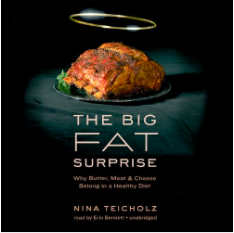When physicians and scientists are confronted with a case that conflicts with what they understand to be true, particularly in the areas of diet and exercise, one typical response is, “Well…that’s an n of 1.”
What they’re saying is essentially this: I can’t prove that thing didn’t happen. But if it did happen, it was in this one case. And to rely on it, we need to see it replicated in studies of a larger population.
So the fact that my LDL and Triglyceride levels dropped 20-30 points and my HDL (good) cholesterol went up 17 points after I switched from cereal to eggs as my breakfast staple doesn’t prove anything.
I’m an n of 1.
Fair enough. The problem, however, as Gary Taubes (more on him in future posts) and Nina Teicholz have pointed out, is that dietary studies are among the least reliable ones in the scientific literature.
They’re either short-term, which by definition means they can’t reliably measure long-term effects, or they tend to rely on self-reported data on food consumption.
How many servings of fruits and vegetables did you have last week? How confident are you in that figure? Do you think the recollection accuracy of dietary study participants is markedly more reliable?
For more than 40 years Americans have been told to eat more whole grains and avoid saturated fat, and the weight of government has been placed behind these directives. As Teicholz and Taubes have suggested, however, these recommendations were made with an air of certainty that was far beyond what the study data could justify.
In their defense, the dietary experts felt a need to give some kind of direction to those who wanted to eat healthy. But the result has been our whole society has been subject to dietary experimentation on a massive scale.
You’re in the same position as those experts of a generation ago, except you don’t have to make recommendations for society as a whole.
You just need to decide how you’re going to eat.
Our twin epidemics of obesity and diabetes suggest that confidence in our current dietary guidelines is misplaced.
You’re an n of 1, too. We each have to reach our best judgment of what eating habits will best promote our health and vitality.
In future posts I’ll highlight some studies and perspectives you might find helpful. All studies are not created equal. More on that next time.
See the whole series about my health journey. Follow along on Facebook, Twitter and LinkedIn.
